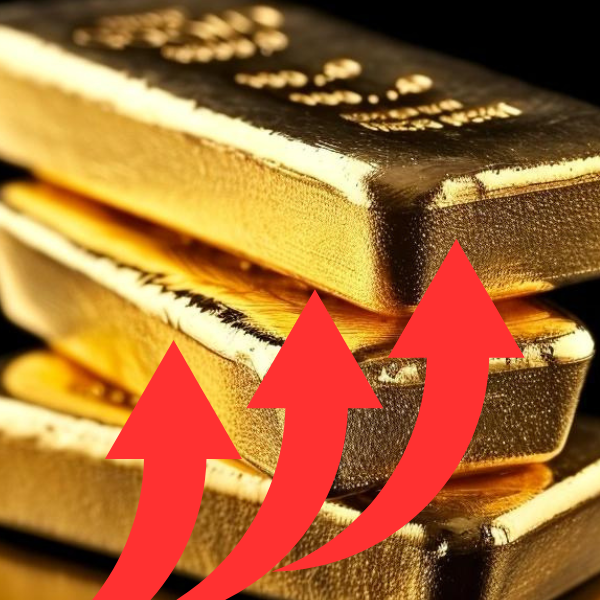The GOLD standard is inevitable
“MATTERHORN-INTERVIEW AUGUST 2012 – Philip Barton”
The gold standard is absolutely inevitable
In this interview for Matterhorn Asset Management, the founder / president of The Gold Standard Institute, Philip Barton, talked with financial journalist Lars Schall about gold primarily as money, not as an investment. He thinks that in this current crisis we will see the separation of the state from money – and gold will be the measure of value.
By Lars Schall
Philip Barton was born in Watford, England in 1946. Since 1965 he has lived in Australia, Colombia, Malaysia, the United States, and Austria. A long-time retailer and restaurateur he has also lectured, panned for gold, worked as a spray painter, hat maker, farmer, company director and investor. He has had an interest in gold going back to the 1970s. He is the founder of The Gold Standard Institute (goldstandardinstitute.com) and the editor of The Gold Standard Journal.
Lars Schall: Mr. Barton, why is it appealing to advocate a return of the gold standard?
Philip Barton: Well, to be precise, Lars, we are not advocating a return of the gold standard, we are advocating the initiation of the gold standard, because the world has actually not for over a thousand years known a true gold standard. A gold standard means by definition that gold is the measure of value. The 19th century, which is commonly regarded as the gold standard, was not a true gold standard, it had a large fiduciary content – about 60 percent of the paper was not backed by gold. It varied from time to time, but let’s say on an average 50 percent of the circulating paper was unbacked by gold. That’s not a gold standard, that’s a paper standard. That was a far better system than we have today, but nevertheless it’s not a gold standard. So we are not advocating going back to anything, we are advocating going forward to an unadulterated gold standard.
L.S.: Do you think this is possible?
P.B.: I not only believe it is possible, Lars, I believe it’s absolutely inevitable. Firstly, the world will return to gold, I knew that twelve years ago. And four years ago, when I founded the institute, I made it very clear to the people who came on board then that the idea wasn’t to push for a return of gold in the monetary system, that was obviously coming irrespective of what everybody did, that was going to come anyway because when paper money collapses worldwide, what else can happen, there is no other alternative; our job was to advocate an unadulterated gold standard – a specific, pure form of gold standard, if you like. So yes, I believe it is not only possible, but also absolutely inevitable.
L.S.: How do you envision such a pure gold standard?
P.B.: It’s very interesting, until about two months or so ago, I couldn’t have answered that question without a lot of waffle, and I had that blinding realization recently, which was: before when government issued pseudo-currencies have collapsed – and a great example is the Weimar Republic, of course, as one that everybody knows – people blamed the government or von Havenstein, the German finance minister, they blamed specific governments, which is fair enough because around Germany and Austria where the inflation happened, the currencies were reasonable fine. So it wasn’t seen as a problem of governments per se, but as a problem of the German government and of von Havenstein in particular.
This is different. In the globalized, synchronized, meshed world of paper money today, every single paper money in the world is interlinked, and I am absolutely convinced, mathematically certain, that when one goes, they’ll all go. Absolutely. And this brings us to the situation where when every single paper currencies collapses at the same time, not only has the money collapsed but surely the validity of the issuing authority has collapsed, too. And I believe for the first time in recorded history, this collapse will see the credibility of governments as organizers of the money supply brought very much into question.
I first wrote about this in October of 2008, about what I saw as an ideal situation for the separation of the state from money. First there was the step to separate the state from church, a very good thing, and the next step will be the separation of the state from money. I actually think that we are upon that point. In this current crisis it looks very real to me that this will be the outcome.
L.S.: Would there also be the need for a separation of private and state banking?
P.B.: If governments don’t control money in any way whatsoever, if money returns to the free market and thus to the people, governments would have no business in banking. In a free market of money, who on earth would choose to bank with a government? There would be no central bank, that kind of banking would be completely divorced automatically by the market.
L.S.: So you’re not much of a fan of central banking?
P.B.: It would be true to say that, Lars. I don’t believe there is any space for a central bank under a system of free money.
L.S.: Why not?
P.B.: Because their sole role is to manipulate interest rates, and interest rates should be a product of the free market, determined by free people, determined by people who are actually making the loans and taking the loans, by nobody else.
L.S.: Would there be the need for a higher revaluation of gold in case there is a gold standard?
P.B.: Well, you’ve got to understand what an unadulterated gold standard really is. Again, gold is the measure of value. So there could be no revaluation of gold. It is a stable measure of value. So what are you going to revalue it against? Paper? That’s a paper standard. Basically, if the question is how high will the price of gold go, my answer is how low will the value of paper money go?
L.S.: You value actually gold not in paper or numbers, but you value it in weight then, correct?
P.B: That’s correct. Imagine the graph of gold in terms of US dollars, where you generally have two axes, one dollar axis and one time axis, and you see that wonderful line going up, and the thing to understand is that this is entirely wrong. That is measuring money in terms of paper. You can no more measure value by paper than you can measure the speed of sound with a tomato, it just doesn’t make any sense.
You have to take that graph and turn it upside down and back to front, and you end up with a time axis at the top and the US dollar value going down, and you see then what’s really being measured, which is the store of value over time via the time axis and the diminishing value of all paper money over time.
So where will the value of paper money go? I’m very sure where it’s going to go, but you only have to take a look at that kind of graph to see where it’s going to go. Although it won’t happen in a straight line, there will be a zig-zag for sure.
L.S.: If we see a bolstered deflation could it happen that the price of gold goes down significantly?
P.B.: In terms of paper money, but not in terms of its purchasing power, no. It is a stable store of value over time, it will hold that value irrespective of in which way governments degrade the paper. At the moment we are certainly on a deflationary path. We’ve had the inflation, most of the people missed it, it was in the 1990’s and up to 2005/06 – look at the Dow for that time, the price of houses, that was inflation. It’s the same thing as with the other graph; people looked at the price of houses, but in fact it’s the value of the money falling in value. We’ve had the inflation, we now have a massive deflation in all assets that will continue and spiral out of control at some point, but that doesn’t mean that in the interim we can’t have rising prices of necessities.
L.S.: How did you actually become interested in the gold standard?
P.B.: In 1978 I was running a business in Victoria, Australia, and my staff kept telling me about the price of gold, and I started to look at it, because virtually everyone was talking about gold back then. It didn’t make any sense to me, I didn’t understand gold, I didn’t know anything about it, but I bought some and held onto it until it went up to $ 850, it felt very good, and then I watched it come way down to $ 270. So I lost quite a bit of money on it. Anyway, I filed it away in the back of my mind that something very important had happened that I hadn’t understood – but something really important had happened, but I didn’t understand what it was, and I knew it would happen again. And so I resolved to keep it on file in my mind, one day it would return, and then I would explore it more thoroughly.
So I went past that point, and then in March of 2000 a friend of mine rang me and said: You should buy into the stock market, there is so much money to be made in the stock market. I have never been interested in investments, I only ran businesses, bought businesses, sold businesses – only real productive things. But he kept nagging me and nagging me, so in the end I looked at the stock market. I came to the conclusion that this was all over, this was not the time to buy in the stock market, he was wrong. But while I was doing that checking out various stocks, I came across a stock called Delta Gold, and this was the first time that gold had entered my mind since 1980, and I looked at that company and the shares were at 30 cents. I thought that this was cheap for a gold mine. Of course, you have to take into account how much gold they have in the ground, how much they are producing, all those things. But my first thought was that this was very cheap.
Then I looked at the price of gold, and it was at $ 252. And then I started reading and reading and reading, I didn’t stop for a long time – in fact, I haven’t stopped reading ever since. I ended up reading about the US monetary supply – and I thought: Wow, that’s huge! I realized in one little way history was rhyming with that period of 1978, so that file in my mind came out, I pulled it all out, I looked deep into it and I became really interested in it. By June of 2000 I had read enough to know – while still thinking about it in terms of investment – the price of gold was going to go up dramatically – and then I started selling everything, drove my wife mad, I mean, I was really selling everything, my house, even my Gibson guitar, and I bought gold, I have been buying gold ever since, swapping my paper for gold as fast as I can.
I was going along that superficial path of gold as an investment up until August of 2007. I was staying down in Austria at that time, and there was a congress or seminar going on in Hungary run by professor Antal E. Fekete. I went there, and I didn’t understand it, Lars, but I sat there and was intrigued. I thought this man is speaking truth, I can’t pretend that I understand everything what he is saying, but what I get is really good. I was there for ten days and I have been studying the work of professor Fekete ever since.
L.S.: And that is worthwhile for sure. As you know, professor Fekete is talking a lot about permanent backwardation in gold. (1) Do you think this is something we are really heading to?
P.B.: Oh, without a doubt. That is that bottom point of that graph we were talking about. There will come a time when no amount of money will buy you gold, and that is backwardation. So yes, I definitely think we are heading towards backwardation. If you’re interested in it, Lars, you should pay attention to Sandeep Jaitly and his Bullion Bases service in London. I subscribe to his service, which is quite expensive to be honest, but nevertheless I regard that as my red flag for when it will really start moving. He and Keith Weiner in the US are the only two who really have a handle on backwardation. It will happen, and when it does happen it will be the big red flag, it will be the fat lady singing…
L.S.: …the blues. You have mentioned the year 1980, which was an important year for gold. What is different in a decisive way compared to today?
P.B.: The US back then had options. The US didn’t have that major debt, it hadn’t indulged in major inflations. Of course, we saw inflation in the 1970’s. They dumped the gold standard in 1971 specifically so they could inflate, but nevertheless the inflation hadn’t been that bad in the 1970’s, they still had the option of recovering the dollar. And the fall of gold against dollar was justified; they strengthened the dollar – interest rates went up to over 20 percent, confidence was recovered in the paper, it was fair enough.
Now we have debt that is absolutely un-payable across the whole world. The whole world economy is chained to the rotting corpse of a gigantic failed paper money experiment, and nothing will change until that changes, nothing will improve until that changes, in fact it will getting worse and worse and worse. It’s too late for people to throw out their governments, it’s nice to see, but it’s too late, it won’t change anything. It’s too late for grand political pronouncements, it’s too late for austerity as well. The problem is not what governments are borrowing and spending, the problem is what governments have borrowed and spent over 40 profligate years since 1971. It’s too late. There is no way it can be paid off now.
Source:
(1) Compare Lars Schall: “Gold: Permanent Backwardation Ahead!”, Interview with Antal E. Fekete, August 27, 2011, online under: https://vongreyerz.gold/category/the-matterhorn-interview/page/2/
Matterhorn Asset Management is dedicated to wealth preservation through safe and secure silver and gold storage in Switzerland. Protect your gold in the world’s safest vaults. To become a client, click here.
Matterhorn Asset Management is dedicated to wealth preservation through safe and secure silver and gold storage in Switzerland. Protect your gold in the world’s safest vaults. To become a client, click here.
GoldSwitzerland
VON GREYERZ AG
Zurich, Switzerland
Phone: +41 44 213 62 45
VON GREYERZ AG global client base strategically stores an important part of their wealth in Switzerland in physical gold and silver outside the banking system. VON GREYERZ is pleased to deliver a unique and exceptional service to our highly esteemed wealth preservation clientele in over 90 countries.
VONGREYERZ.gold
Contact Us
Articles may be republished if full credits are given with a link to VONGREYERZ.GOLD




